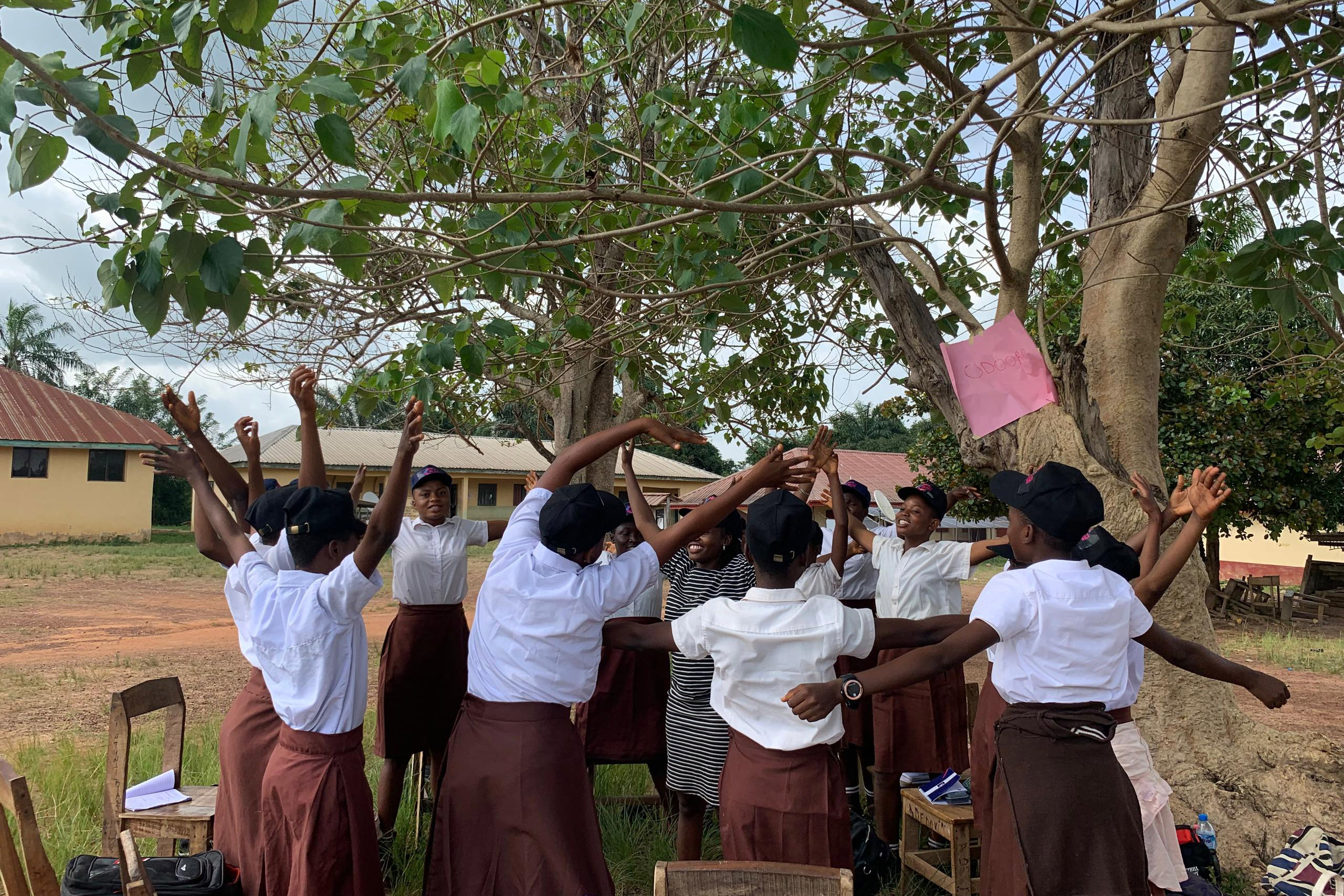World Health Organization
WHA78: Member States highlight the crucial role of the GCM/NCD in driving multisectoral and multistakeholder action on NCDs
Meaningful Engagement of People with Lived Experiences
27 May 2025
World Health Organization | 11 Dec 2024
Female Genital Mutilation is estimated to affect close to 20 million women and girls in Nigeria. Ekiti state in the southwest of the country has one of the highest rates of survivors, with one in two women and girls aged 15-49 reportedly being affected. Female Genital Mutilation is a harmful practice and an internationally recognized violation of multiple human rights. It causes severe bleeding, infections, as well as complications in childbirth, while also severely impacting individuals’ mental health. Survivors and their families are at risk of experiencing anxiety, depression, decreased sexual desire and pleasure, traumatic memories, and post-traumatic stress disorder.
In Ekiti State as in other regions of Nigeria, support for survivors of Female Genital Mutilation is largely limited to public awareness campaigns. There is a significant gap in mental health services and support systems for women and girl survivors across the State.
Founded in 2017, the Gender Mobile Initiative specializes in preventing sexual and gender-based violence and providing mental health and legal support to survivors. Since 2022, the project puts a focus on raising awareness and improving support for survivors of Female Genital Mutilation in Ekiti State, with initial support from UNICEF and the UN Joint Programme to accelerate transformative actions to end Female Genital Mutilation.
The project’s innovative approach combines survivor-led community engagement and culturally sensitive counselling, discreet access to first-line support via a hotline and online platform, and tailored capacity building to integrate and strengthen mental health support in primary care facilities, communities and with political leaders.

Adolescent Girls Champions training in Ikole LGA in Ekiti State. Photo: Gender Mobile
Building on the project’s initial success establishing a survivors’ network, Gender Mobile’s current focus is on integrating mental health services and survivor-led peer support at primary care facilities in three communities across Ekiti state. In a first step, the project team is looking to engage up to 50 local women and girls in a survey on the mental health needs and barriers among survivors and their families.
Based on this survey, the team will co-design culturally sensitive mental health information and training materials with survivors, community leaders, and local health practitioners. In three community health centres, Gender Mobile is planning to train health workers, nurses, and counsellors in providing tailored mental health support to survivors of Female Genital Mutilation. The pilot training will include counselling and referrals across different cultural, religious and language backgrounds, raising awareness and encouraging action among community members and bystanders, and leveraging the expertise of survivors for tailoring activities to local needs.
Participating community members and health professionals are invited to join Gender Mobile’s growing survivors’ network. Participants also gain direct access to the 24-hour phone helpline, offering discreet access to relevant information and first-line mental health support.
Influential leaders in Gbonyin LGA developing an action plan. Photo: Gender Mobile
Through its previous activities, the Gender Mobile Initiative has effectively strengthened mental health and community support for survivors of Female Genital Mutilation and gender-based violence across 14 rural communities in Ekiti State and among the 130 women and girls who have joined the survivor network.
The project’s first training format on identifying, supporting and referring mental health conditions of survivors of female genital mutilation was successfully piloted with 36 community facilitators, who went on to train 216 adolescent girls champions and 60 representatives of local community organizations supporting house-to-house advocacy efforts.
By integrating its training and advocacy activities into community health centres and extending its survivor network, Gender Mobile’s work has the potential to sustain and expand its successful approach at primary care level and scale-up to further communities across Ekiti State.
A radical shift in global public health is needed to avert millions of preventable and premature deaths from noncommunicable diseases (NCDs), including cancer, diabetes, cardiovascular disease, chronic respiratory disease, as well as mental health conditions. Primary health care (PHC) approaches present an important opportunity to transform and innovate how NCD and mental health services are delivered. For its 4th cycle, the NCD Lab – a WHO platform promoting grassroots innovation for NCD prevention and control – called for innovative solutions that strengthen the delivery of NCD and mental health services using the PHC approach. From the more than 80 projects submitted, five promising innovations were selected to be included in the growing global portfolio of leading NCD innovations and receive tailored support to enhance impact and achieve scale.